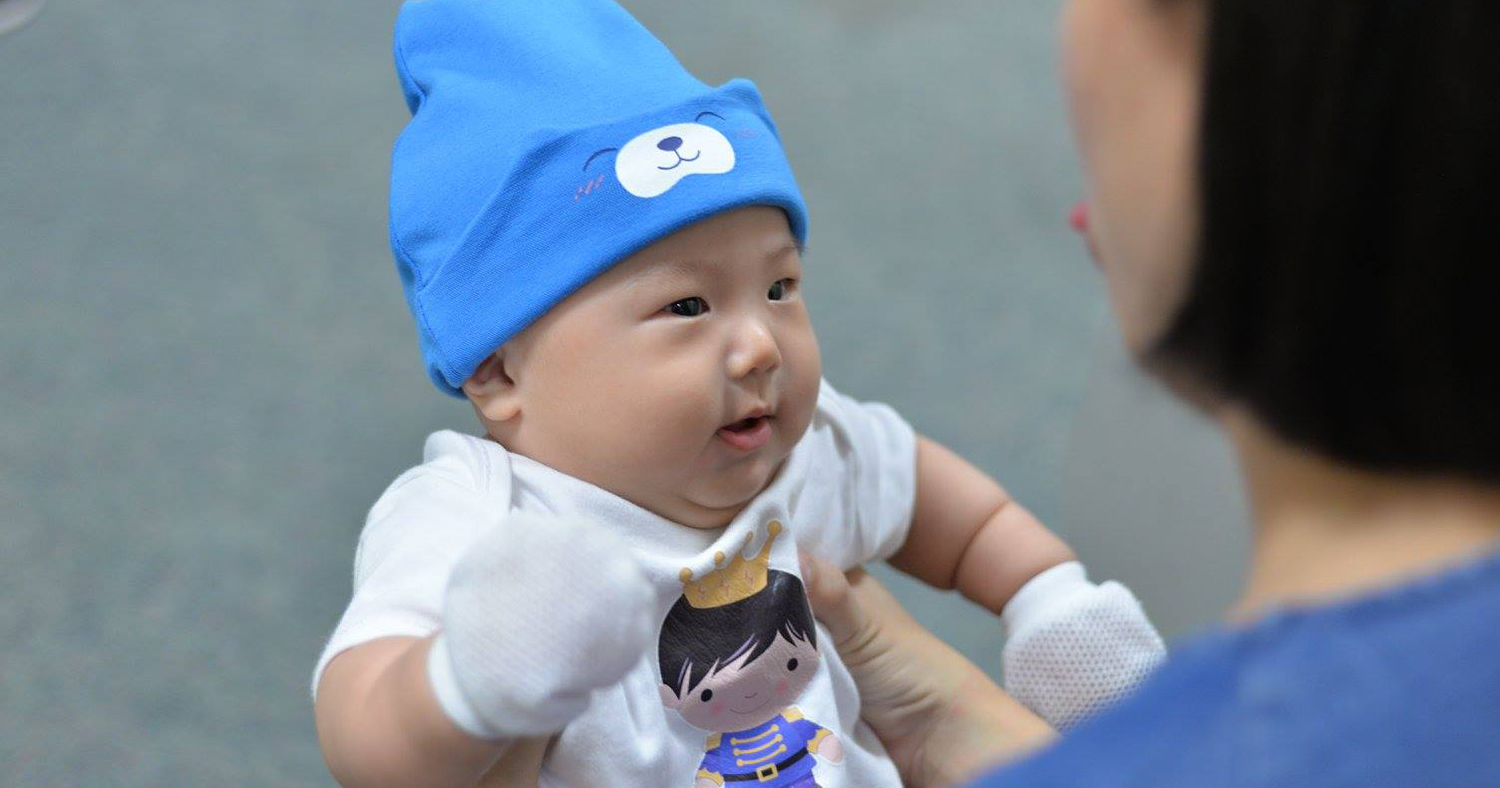The number of citizen marriages in Singapore is on the rise.
This was revealed by Josephine Teo, Minister for Manpower and Second Minister for Home Affairs, on population at the Committee of Supply debate on Feb. 28.
More citizen marriages
In 2004, Singapore registered 19,600 citizen marriages (defined as a marriage involving at least one citizen). In 2018, this number is estimated to be 23,600.
According to Teo, the average number of marriages alone in the last five years (24,000) is significantly higher than that of the decade prior to it.
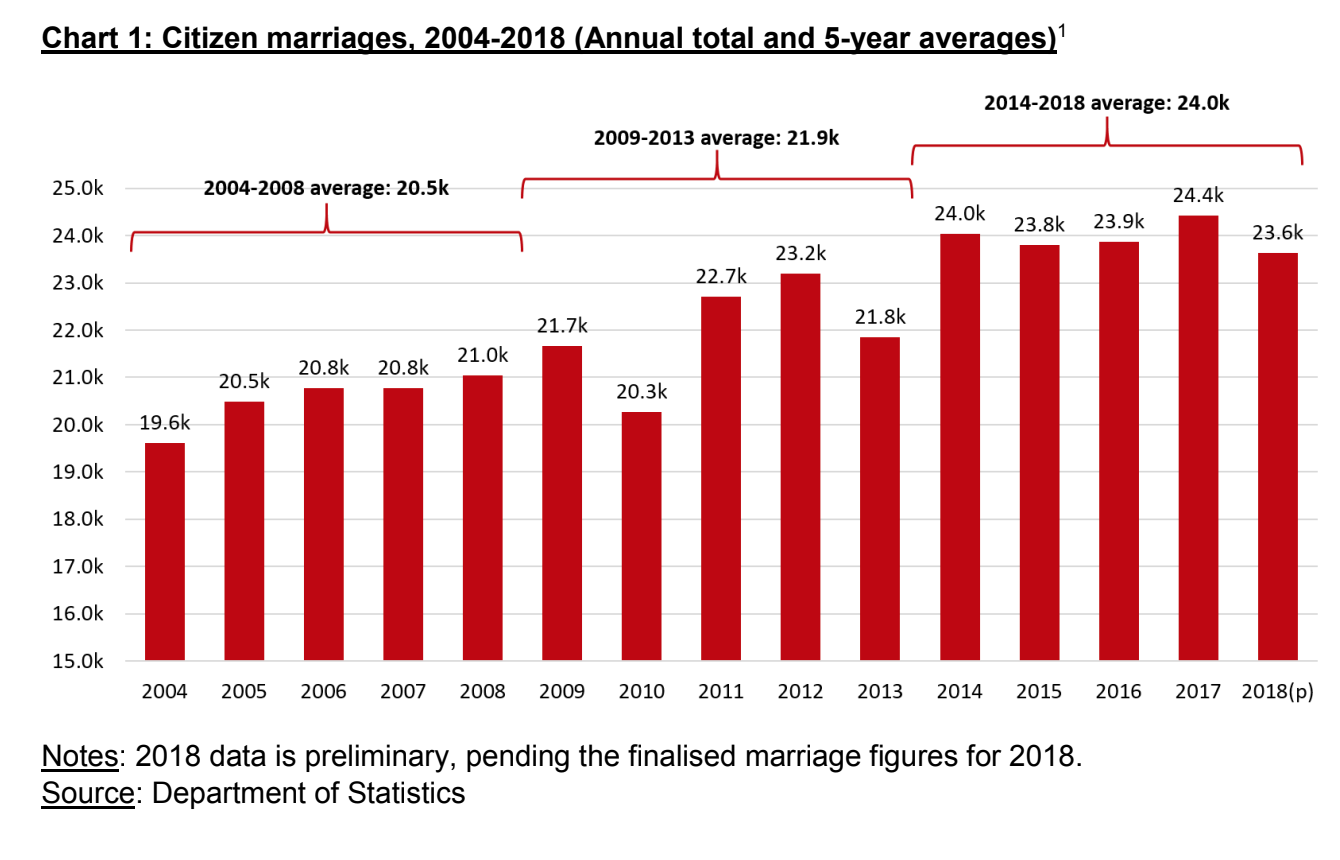 Courtesy of PMO.
Courtesy of PMO.
Additionally, Singapore has seen a slight increase in citizen births over the last 15 years.
The average number of births in the last five years (33,000) was higher than previous five-year periods - 32,000 for the period of 2004 to 2008, and 31,400 for the period of 2009 to 2013.
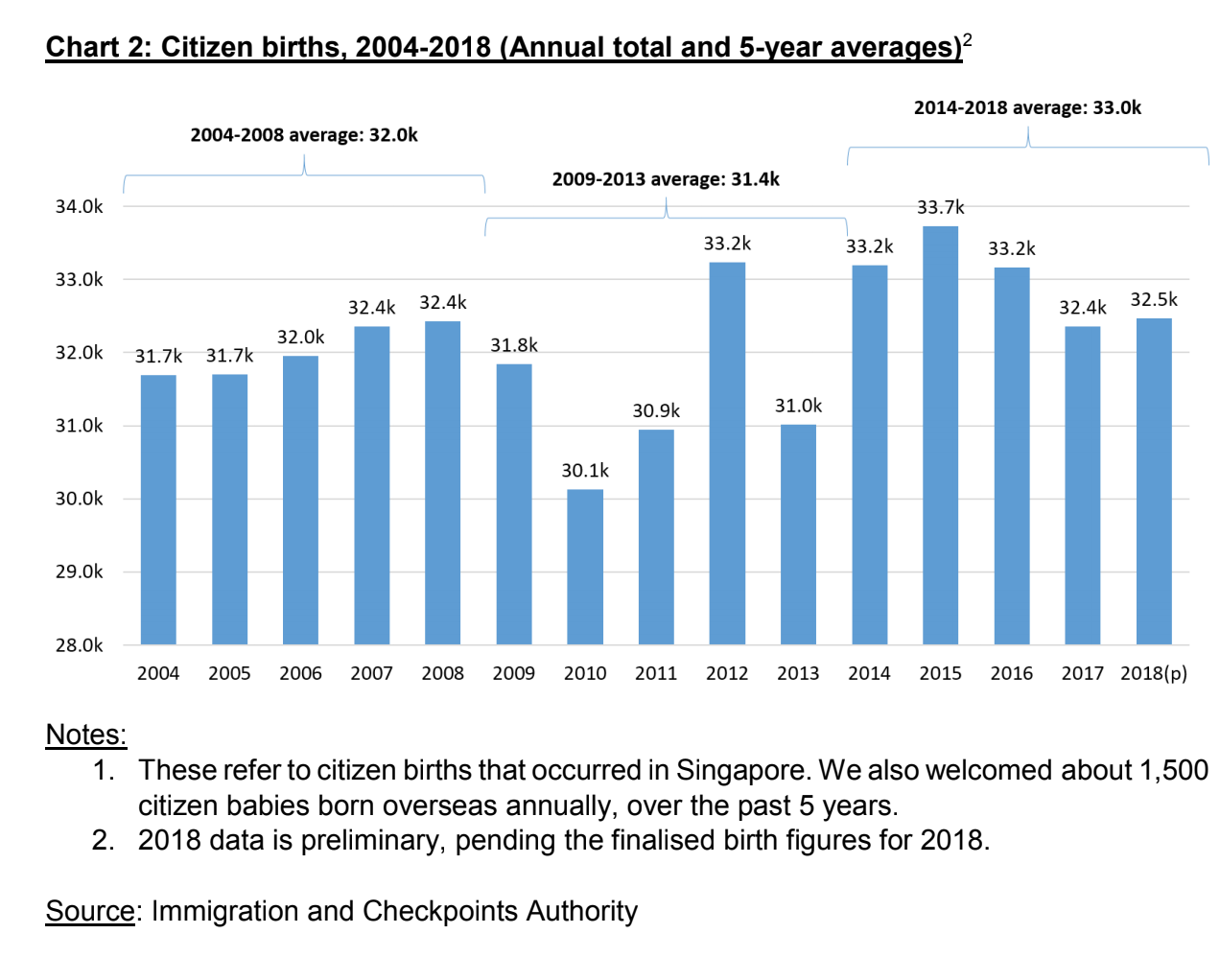 Courtesy of PMO.
Courtesy of PMO.
Teo also mentioned that the number of citizen babies born overseas is on the rise. From 2004 to 2008, the average number of overseas citizen births was 1,000.
This jumped to an average of 1,400 from 2009 to 2013, and subsequently 1,500 for 2014 to 2018.
Fertility rate drops to lowest in history
Despite these figures, Singapore's Total Fertility Rate (TFR) has been dropping.
Last year, Teo revealed that Singapore's TFR reached a seven-year low of 1.16 in 2017.
The TFR dropped again to 1.14 in 2018 according to preliminary estimates. This is the lowest TFR ever recorded in Singapore, since records began in 1960.
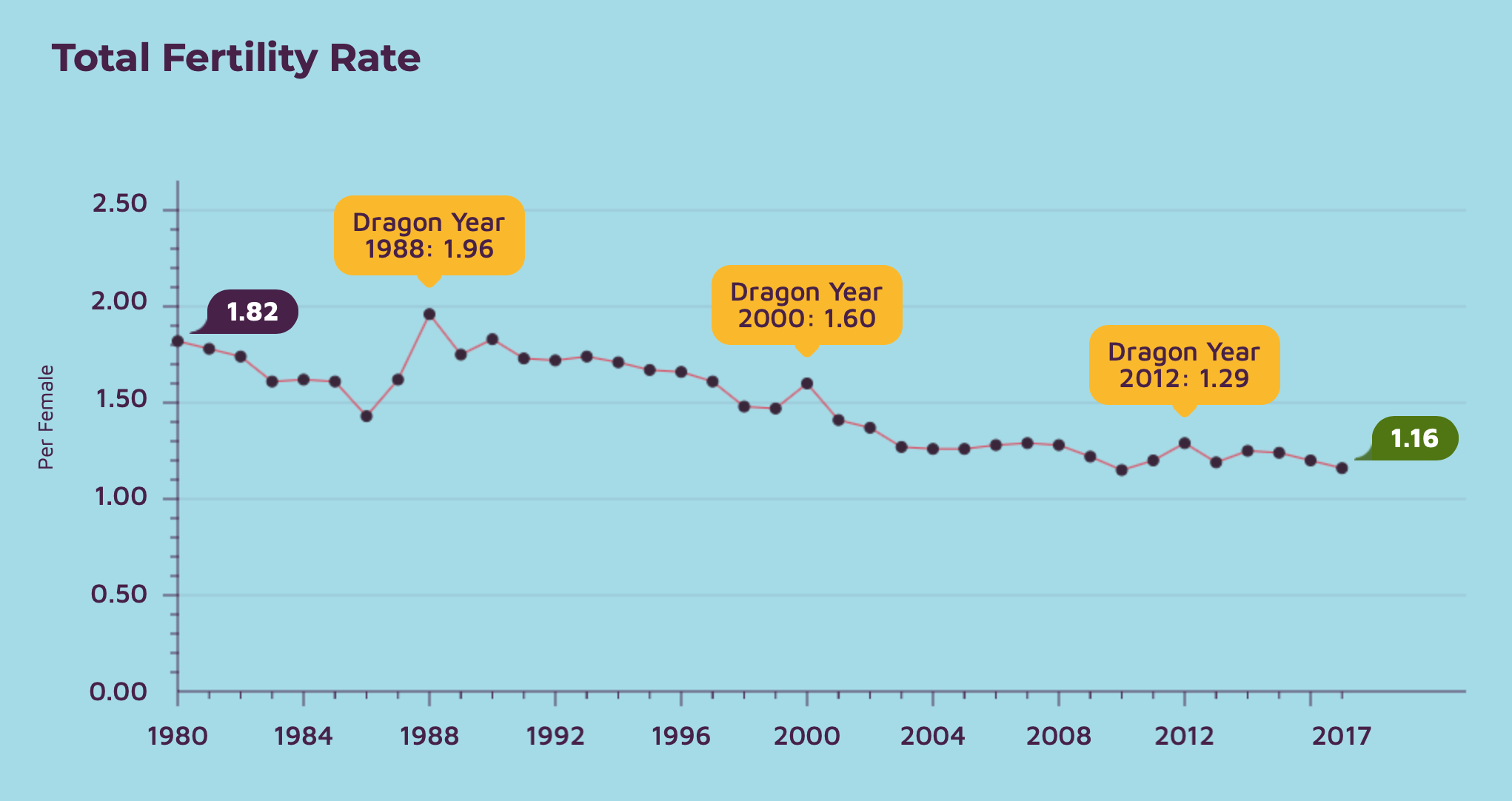 Via SingStats.
Via SingStats.
Marry later, have kids later
According to Teo, this is because young Singaporeans are taking longer to find their partners and start families.
The minister quoted the 2016 Marriage and Parenthood Survey, which found that:
- 83 per cent of single millennials have the intention to marry.
- 92 per cent of married Singaporeans want two or more children.
Although most single millennials (age 21-35) surveyed want to marry, 59 per cent of them were not dating seriously (i.e with a view toward marriage) while 41 per cent had never dated seriously before.
The most common reasons cited by single millennials for not dating were:
- Have not met a suitable partner
- Not many opportunities to meet potential partners
- Leaving dating to chance
Married respondents said that practical concerns, such as financial costs and lack of caregiving arrangements, prohibit them from either having children or more children.
A majority also indicated that having flexible working arrangements will make it easier for them to have children.
Fertility rate might increase in future
Taking these ground sentiments and marriage and birth statistics together, Teo said that she is hopeful the fertility rate will increase in the future:
"We believe this explains recent drops in Singapore’s total fertility rate (TFR), to 1.16 in 2017 and 1.14 last year.
But, given the positive marriage trends, I remain hopeful that there could be an uptick in TFR when the children of the baby boomers start having babies themselves."
This is also because the government has been progressively improving the incentives for marriage and parenthood.
Newlyweds and new parents today benefit much more in terms of cash gifts, grants, preschool places and work support compared to five years ago.
Below is a snapshot of some of the main benefits available today (you can view the full set of incentives here at heybaby.sg)
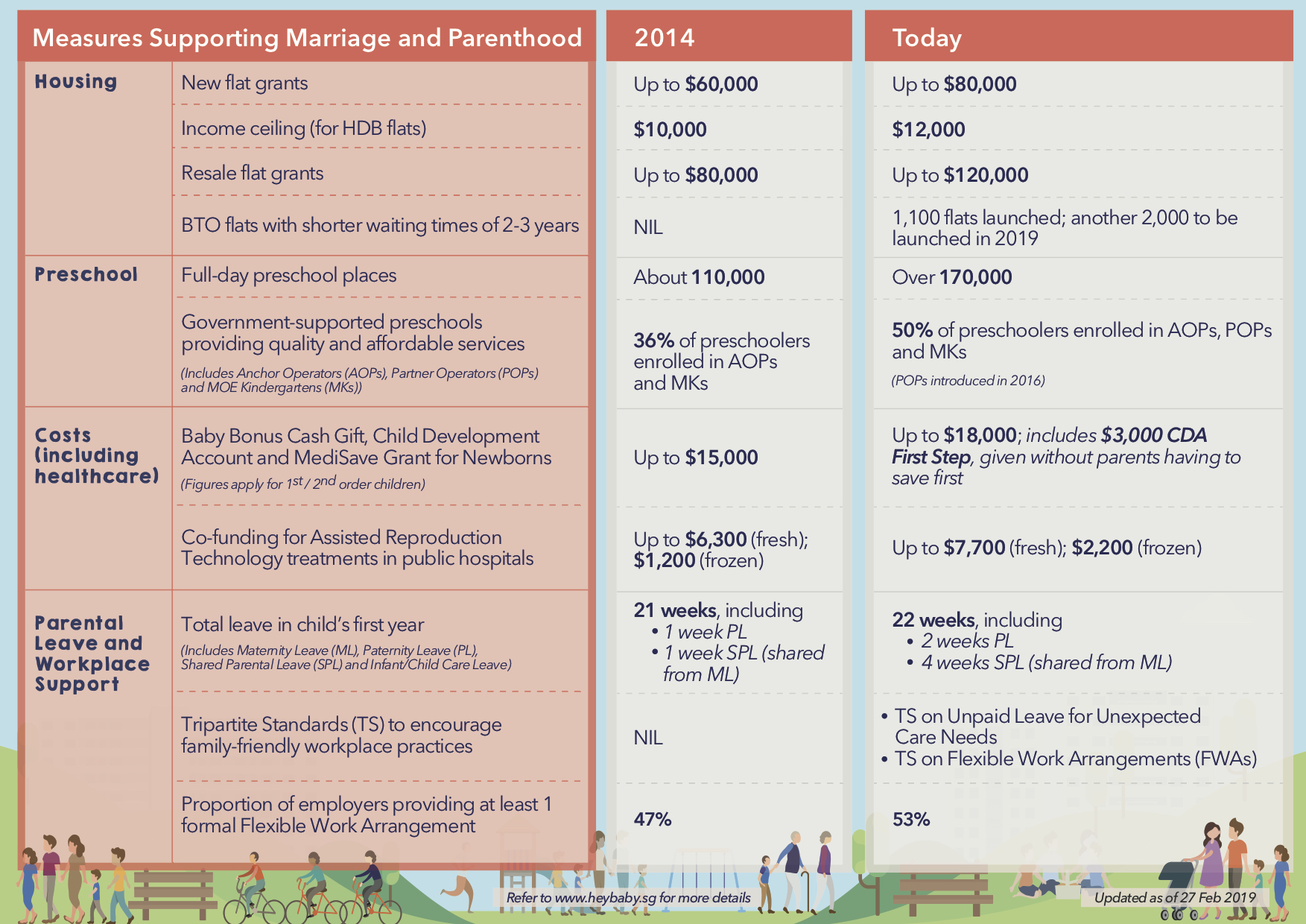
According to Teo, these measures implemented over the past five years are significant but require time to bear fruit.
Teo affirmed that marriage and parenthood are personal decisions that require support not only from the government but also family, society and employers
She added that the National Population and Talent Division will be holding a consultation process to find out how the government and community can better support Singaporeans who want to marry and have children.
More details of this consultation will be released soon.
In the meantime, some Mothership folks explain why they're not married:
Top image via KK Hospital's Facebook page.
If you like what you read, follow us on Facebook, Instagram, Twitter and Telegram to get the latest updates.
